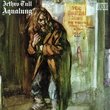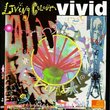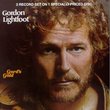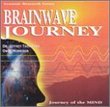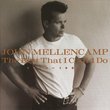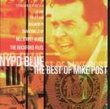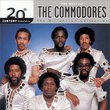| All Artists: Modest Mussorgsky, Bela Bartok, Igor Stravinsky, Esa-Pekka Salonen, Los Angeles Philharmonic Orchestra Title: Le Sacre du Printemps [Hybrid SACD] Members Wishing: 1 Total Copies: 0 Label: Deutsche Grammophon Original Release Date: 1/1/2006 Re-Release Date: 10/10/2006 Album Type: Hybrid SACD - DSD Genre: Classical Styles: Ballets & Dances, Ballets, Forms & Genres, Theatrical, Incidental & Program Music, Historical Periods, Modern, 20th, & 21st Century, Symphonies Number of Discs: 1 SwapaCD Credits: 1 UPC: 028947761983 |
Search - Modest Mussorgsky, Bela Bartok, Igor Stravinsky :: Le Sacre du Printemps [Hybrid SACD]
![Le Sacre du Printemps [Hybrid SACD]](https://nationalbookswap.com/cd//l/90/0390/6140390.jpg) | Modest Mussorgsky, Bela Bartok, Igor Stravinsky Le Sacre du Printemps [Hybrid SACD] Genre: Classical
This is Esa-Pekka SalonenÂ?s debut live recording from the Walt Disney Concert Hall and his first recording as the principal conductor of the Los Angeles Philharmonic on DG. The central piece, StravinskyÂ?s Le ... more » |
Larger Image |
CD DetailsSynopsis
Album Description This is Esa-Pekka Salonen�s debut live recording from the Walt Disney Concert Hall and his first recording as the principal conductor of the Los Angeles Philharmonic on DG. The central piece, Stravinsky�s Le Sacre du printemps was conducted by Salonen on the inaugural night of the Hall in 2003, a masterpiece that becomes something of a miracle within the outstanding acoustics of the Walt Disney Hall. This recording captures the energy, beauty and musical power of this extraordinary collaboration. To capture the full sound experience of this concert, DG delivers this recording on a hybrid SACD. This release is certain to be a superior musical experience if not the new reference recording of this classical music milestone. Other pieces on this release are Mussorgsky�s Night on Bald Mountain and Bartók�s Miraculous Mandarin Suite�works that benefit greatly from the superb acoustics at the Walt Disney Concert Hall as well as the highest possible recording sound quality. Similarly Requested CDs
|
CD ReviewsAnd Now The Musical World Can Hear! Grady Harp | Los Angeles, CA United States | 10/13/2006 (5 out of 5 stars) "Esa-Pekka Salonen has become one of the foremost conductors of Stravinsky's masterpiece 'Le Sacre du printemps' and finally there is a recording to match the brilliance he reveals in this score. This astonishingly superb CD is the first recording made in the perfect acoustic of the Walt Disney Hall in Los Angeles, the home of the Los Angeles Philharmonic. While no recording can capture the otherworldly magic of sitting in this hall surrounded with the most perfect sonics ever granted an orchestra by an architect, an acoustician, and the power of the premiere orchestra under the baton of Salonen, this recording comes as close as possible! Salonen opens this 'concert' with Mussorgsky's original 'Night on Bald Mountain' - a sophisticated work not at all like the Disney Fantasia version. For those who are hearing this work in its original form for the first time the power of the effect may seem diminished, but repeated exposure allows hearing the inner lines of this very well orchestrated work. What follows is Bela Bartok's 'The Miraculous Mandarin', a work too seldom performed. It is rich in echoes of 'Bluebeard's Castle' and is a moody masterwork of extremes in dynamics and in tempi. The sonics from the hall capture all of the delicacies (solo desk contributions are amazingly clear) and satire of this rich score. But of course the raison d'etre for this first recording session is the Le Sacre du printemps and here Salonen and the Los Angeles Philharmonic give the most sensitively detailed, propulsive, earthy, exhilarating performance on record. Le Sacre comes from within the brilliant mind and soul of Esa-Pekka Salonen and what he achieves is uncanny and right. The piece is now so familiar that comparisons come quickly, but few will be able to resist applauding not only the extraordinary sound here but also the profoundly moving performance. Salonen gives it his all and the orchestra 'sounds' like the premiere ensemble it has become. This is a landmark recording that belongs in the library of every lover of classical music. It is breathtaking! Grady Harp, October 06" Worth adding if you already own other versions of Sacre Martin Selbrede | The Woodlands, Texas | 04/12/2007 (4 out of 5 stars) "Like some other reviewers, I was expecting to fall in love with Salonen's work (given how strong a performance he recently recorded of three major works by Hindemith, and the care he took with those, albeit recorded in a different concert hall with the LA Philharmonic). This version of Le Sacre does have its moments, but I find Gergiev's performance more compelling (notwithstanding the sometimes recessed sound of the eight French horns), and surely more dramatic. Sonically, there's enough bass drum content in this recording to probably inspire some low rider to tool around town in a lowered Chevy playing this CD loud enough to crack his own ribs, a result that's highly desirable in his value system. But the bass drum is more dramatic and even harrowing in Gergiev's recording, which is somewhat inexplicable yet nonetheless true. In any event, the hype over this recording is somewhat overstated: it is hardly revolutionary. I also regret to report that Salonen's performance of the original version of Mussorgsky's "Night on Bald Mountain" does not compare to the premiere recording by Claudio Abbado, which still comes across as definitive interpretationally, in regard to balance, and with respect to sonic clarity. This is something of a surprise, given how little competition Salonen has to deal with in bringing this work to the public's attention. My complaint throughout most of my listening was "where are the details? everything sounds muddy compared to Abbado!" Maybe the engineers are still figuring out how to get clarity recording in this new hall -- they certainly haven't achieved it as yet. The Bartok work is well-recorded, and although I own several other versions, this might end up being my go-to interpretation for the work: it is at least tied with the other top contenders (Abbado's on DG, and the Complete Bartok Edition version as well)." Very Good, but The Rite may be a different composition Tom Gossard | Los Angeles, CA United States | 01/22/2007 (4 out of 5 stars) "Moussorgsky's 1867 orchestral version of Night on Bare Mountain (presumably the one presented on this disk) is, to say the least, fascinating in contrast to the familiar Rimsky rendition. The latter work - they really are two distinct compositions, as even a casual listen discloses - is a solid, fluent, refined and polished concert piece (as one would expect from the master composer and orchestrator), while Moussorgsky's is elemental - rough edged and earthy, really "foreign" sounding to a listener accustomed to Western European norms and conventions. The composer's version fascinated me and also bewildered. I loved the intense, have-at-it passion and swagger, then thrown by too-many-times repeated sections, fascinated, puzzled, and so on, nearly worn out by the end, but wanting to hear it again right away? Definitely have a listen, it's well worth it at least once.
If you haven't heard The Miraculous Mandarin suite, boy oh boy are you in for a ride. It's wild, weird, passionately erotic, and not a little spooky. It's one of those pieces, very like Stravinsky's Rite, that in a good performance (Salonen's is stunning and really stunningly recorded) my hair stands on end and I've got goose bumps every time. Thankfully by now there are several very good, well-recorded performances on disk, among them Charles Dutoit's with the Montreal Symphony, and that conducted by Jean Martinon with the Chicago Symphony on RCA (if it's still available). In addition to the almost frighteningly intense playing of the Chicago Symphony for the Martinon, RCA's recording engineers conjured an equally frightening, in your face sound that is hot, humid, and lurid; maybe it was intentional, but it works fabulously. It's not your average recording, whether it appeals to you or not. Many thanks to __ for your very valuable, informative, in depth review of the LAPhil/Salonen Rite of Spring. You clarify so much of what makes the several versions different, in a way it is possible for me to hear and imagine. That says a lot about a music critic in my book! I'm sorry you are disappointed with it for the reasons you give, but certainly understand. I have a couple of "issues" of my own that shouldn't deter anyone from buying this disk, since it is spectacularly fine. Another reviewer suggests this release is warrants becoming a milestone in recording history, and I'm inclined to agree, for the reasons given elsewhere. It's remarkable that the same ballet which set the 20th century (Western European) music world on fire, may do so again in the 21st century, by crashing through old, wearied assumptions regarding the classical music "canon," as well as the role of composers, performers, listeners, venues, and media. Extraordinary! All that said, I have considerations about the performance of this Rite that may just reflect some conservative attitudes I'm holding to. Salonen's interpretation is very good, but it's not the be all end all I see several reviewer's here think it is. It may be, for practical purposes, a standard to compare other readings to, but it has its limits, too. A fine composer himself, Salonen feels and knows the guts of another composer's work, so he can't be faulted for missing a host of nuances of rhythm and phrasing because he doesn't get them. Yet he sands down the details of Stravinsky's Rite to obtain a sleek, aerodynamic flow; and those details are an integral part of Stravinsky's composition, not Salonen's. So I suppose what we have here is a composer's reading of another composer's music resulting in a third composition, the Salonen/Stravinsky Rite of Spring. It's a striking work in its own right (no pun intended) but it doesn't represent Stravinsky's ideas near accurately. It isn't a simple matter of a different interpretation (though Salonen takes a strong, forceful point of view and presents it straightforwardly), rather a distinct one, a major review, and recreation of the Rite. Therefore, it must be judged on its own terms as much or more than Stravinsky's. My reaction to this recording is very positive, and may over time become more and more so (or less so, of course, but I think the positive trend likelier). But, if you want to hear more of Stravinsky's work than the hybrid, there are quite a number of excellent to outstanding recordings to choose from.* If you are satisfied with this disk and don't want to try another for now, that's more than good enough to stick with this one. The sound is spectacular, but here too there are many other concert halls waiting for your audition if you choose. Disney is unusually fine and is also a new direction in concert hall concept and design, full of potential, much of which hasn't yet to be conceived, tried, and realized. This CD aims forward to find new ground and mark new parameters for musical creation and re-creation. I hope that this release might also shed some light backward, where curiosity about great recorded performances in the past will lead to unexpected discoveries and pleasures there. * Two personal favorite Rites of mine are Pierre Boulez conducting the Cleveland Symphony (once on Sony Classics) and my favorite of favorites, with Pierre Monteux conducting the Boston Symphony Orchestra. The latter is mono sound, not the best but plenty good enough to reveal an almost shockingly primal interpretation-it all hangs out here, let me tell you, with fierce intensity and abandon one moment, fecund sensuality next, all caught up in a fevered unconscious drama of play and dance." |

 Track Listings (16) - Disc #1
Track Listings (16) - Disc #1